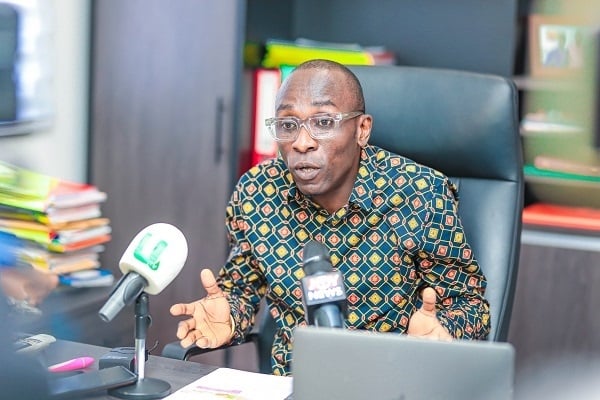The controversy surrounding Sammy Gyamfi, the National Communications Officer of the National Democratic Congress (NDC) and Acting Chief Executive Officer of the Ghana Gold Board, stems from a viral video showing him presenting a cash gift to Nana Agradaa, a self-proclaimed evangelist and former fetish priestess. This seemingly innocuous act ignited a firestorm of criticism from various quarters, including members of his own party, anti-corruption advocates, the Minority caucus in Parliament, and the general public. The backlash prompted Gyamfi to issue a public apology, expressing regret and acknowledging the unfortunate nature of the incident. However, the apology failed to quell the rising tide of disapproval, with calls for his suspension echoing from different segments of society.
Adding a layer of complexity to the narrative, Ernest Kofi Owusu Bempah, a Deputy National Communications Director of the opposition New Patriotic Party (NPP), stepped forward to defend Gyamfi. Bempah argued that the criticisms leveled against Gyamfi were unwarranted and hypocritical, particularly coming from members of the NPP. He pointed to alleged instances of past NPP appointees lavishly spending money on women without facing similar public condemnation. Bempah posited that if Gyamfi had the financial means to bestow the gift, there was no inherent wrongdoing in his actions. He challenged critics to produce concrete evidence of financial impropriety if they wished to pursue the matter further, suggesting that the outcry was fueled by envy rather than legitimate concerns.
Bempah’s defense of Gyamfi hinges on several key arguments. Firstly, he invokes the principle of “clean hands,” suggesting that those criticizing Gyamfi should be free from similar indiscretions themselves. By highlighting alleged past behaviors of NPP members, he attempts to deflect criticism and portray the attacks on Gyamfi as politically motivated. Secondly, he emphasizes Gyamfi’s personal financial capacity to make the gift, arguing that if the funds were legitimately acquired, the act itself is not inherently wrong. He essentially frames the issue as a matter of personal spending choices rather than a breach of public trust. Thirdly, he challenges critics to provide tangible evidence of wrongdoing, implying that in the absence of such evidence, the accusations are baseless and driven by jealousy.
This controversy underscores the complex interplay of politics, religion, and public perception in Ghana. The act of gifting money, while culturally common, becomes problematic when it involves a public figure like Gyamfi, particularly given Agradaa’s controversial background. The public scrutiny intensified due to Agradaa’s recent conversion from a prominent fetish priestess to an evangelist, raising questions about the motivation and appropriateness of the gift. The timing of the incident, amidst growing concerns about corruption and accountability in Ghana, further fueled the public outcry.
The differing responses to the incident highlight the partisan divide in Ghana’s political landscape. While some within the NDC expressed disapproval of Gyamfi’s actions, others, like Owusu Bempah, rallied to his defense, framing the criticism as politically motivated attacks. This partisan lens complicates the issue, making it difficult to discern genuine concerns about ethical conduct from politically driven agendas. The public discourse surrounding the incident has become a battleground for competing narratives, with each side attempting to frame the issue in a way that benefits their political stance.
The controversy surrounding Sammy Gyamfi and his cash gift to Nana Agradaa raises broader questions about the ethical conduct of public figures, the role of money in religious settings, and the challenges of navigating public perception in an increasingly polarized political climate. The incident serves as a reminder of the heightened scrutiny faced by public officials and the potential consequences of actions that, while seemingly innocuous, can be interpreted in various ways depending on the prevailing political and social context. The ongoing debate surrounding the incident highlights the need for greater transparency and accountability among public figures and the importance of fostering a culture of ethical conduct in all spheres of public life.














